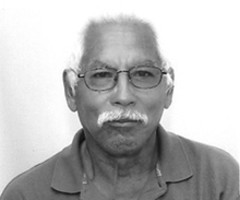The Caribbean Network of Fisherfolk Organisations is a non-profit regional network operating in all of the CARICOM countries. Its mission is to “Improve the quality of life for fisherfolk and develop a sustainable and profitable fishing industry through networking, representation and capacity building.” In early 2009, members of the CNFO shaped their vision and mission, advocating ecosystem-based management of fisheries resources through collaboration of national and regional fisherfolk organisations.
The network has also been engaged in regional projects, such as the Caribbean Large Marine Ecosystem project to restore degraded coastal habitats. Pursuing its vision, the CNFO is sharing information on fishing gear and techniques that contribute towards sustainable fisheries. It has also taken an active role, working with the Centre for Resource Management and Environmental Studies, in advocating for the application of the FAO Code of Conduct for Responsible Fisheries.
http://www.caricom-fisheries.com





